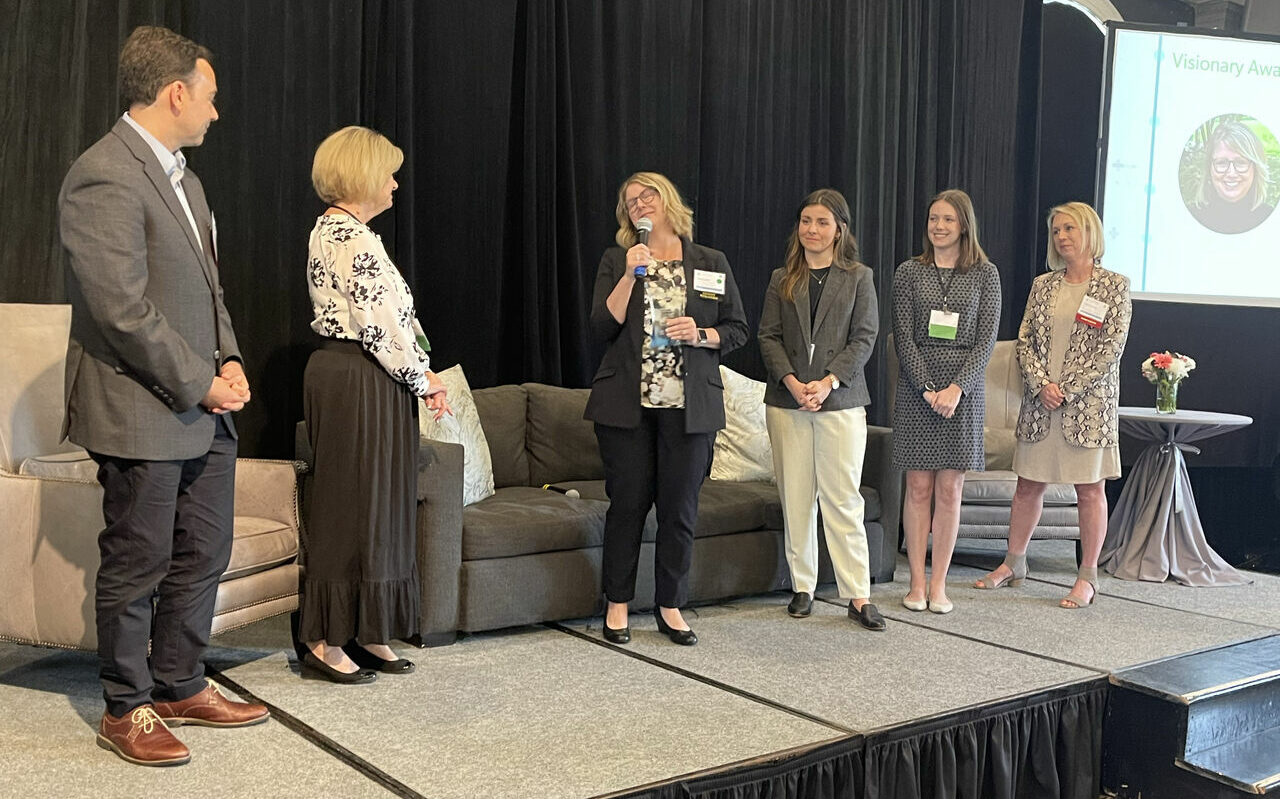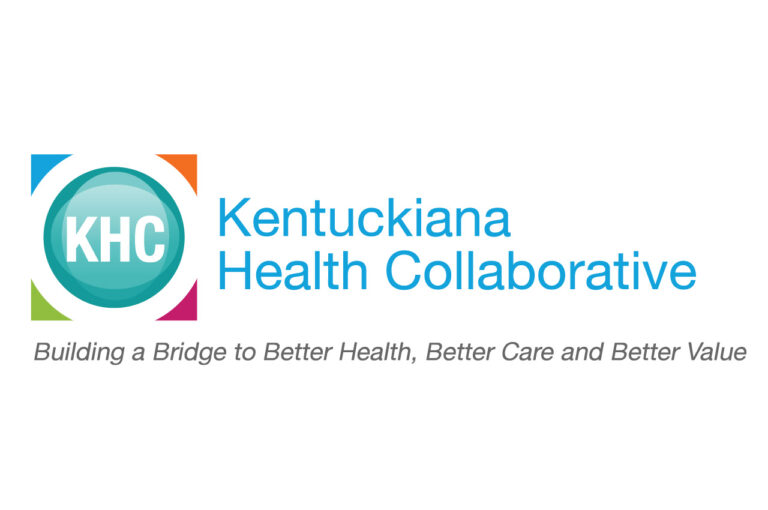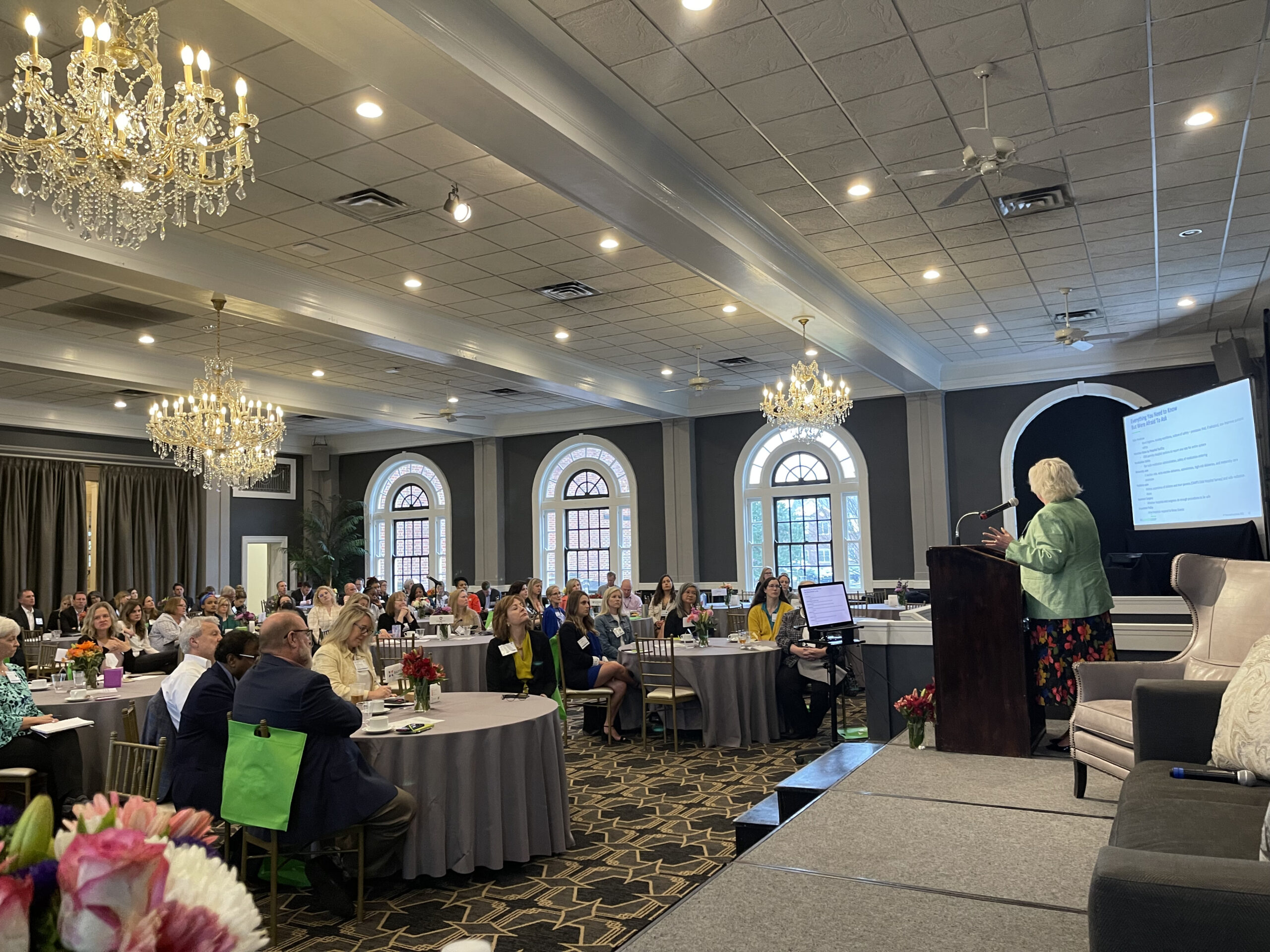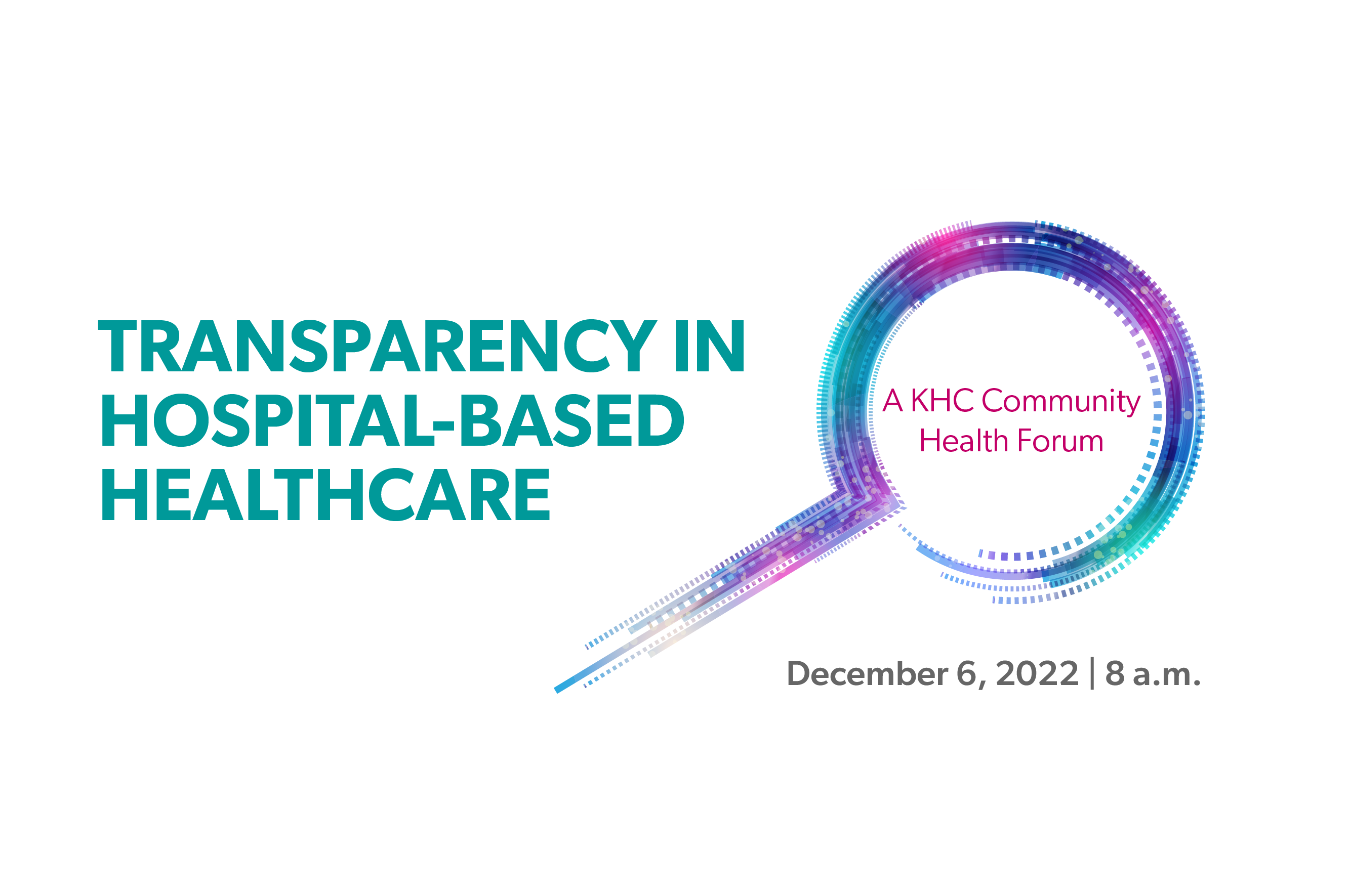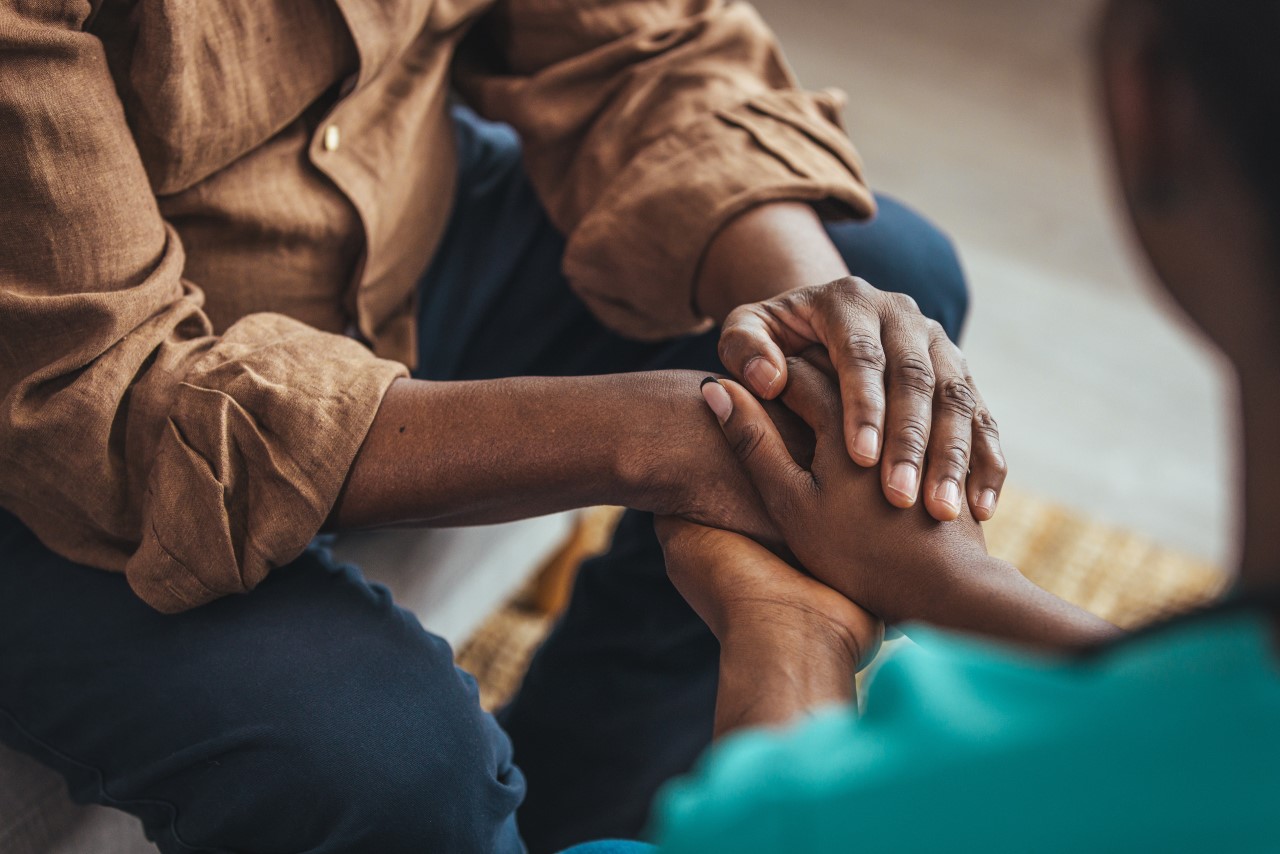How exciting to be back in person for the 2022 KHC Annual Conference. People were almost giddy being able to see each other in real life rather than just on a computer screen. And being able to remove the mask requirement for the event allowed us to see each other’s whole faces. Of course, there are always the realities of in-person visits – you know – someone is taller or shorter than they appear on screen.
Along with the excitement of being face to face, there was a tangible spark of excitement in the air as the speakers and panelists engaged and encouraged us all to move from theory to action. From talking about issues to taking steps to improve our healthcare system. From the personal stories to the data that drives our decisions – we heard about aspects of our healthcare system that have left tragic scars on people. But the speakers and panelists helped us see how to improve our healthcare system and create one that moves beyond the issues and ensures that all people have access to quality, affordable, and equitable care.
It’s critical that we don’t lose the excitement and energy we felt on April 12 and 13. At the beginning and end of the conference I asked each of the 151 people in attendance to take away at least one key learning that their organization could embrace and take action to implement and improve the current healthcare ecosystem.
Leapfrog Group Shares Pandemic Reversals and Local Hospital “A” Rating
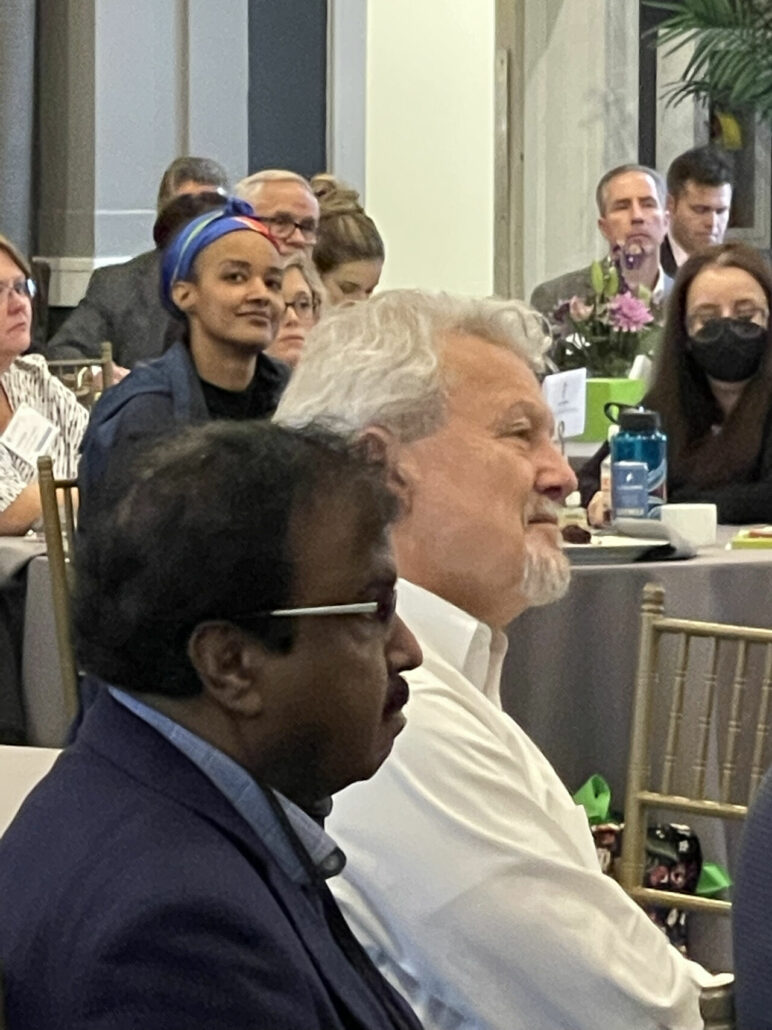
We started the day moving from theory to action with good and bad news from the morning keynote speaker Leah Binder, President of the Leapfrog Group, for which the KHC is a Regional Leader. Leah discussed how the COVID-19 Pandemic reversed years of patient safety progress, sharing that The New England Journal of Medicine reported a 28% increase in healthcare associated infections, a 17.4% increased rate of falls causing serious injury, and a 41.8% increased rate of pressure ulcers. And while hospital safety impacts everyone, Leah shared information from a report by the Urban Institute that revealed that “even when admitted to the same hospital, Black patients experience higher rates of hospital-acquired injuries or illnesses occurring during or shortly after surgical procedures relative to white patients.” The good news is that Leah shared the tools that employers and others can use to influence hospital safety transparency. She recognized our own Baptist Health team for their Leapfrog A grades. Want to learn more to act on safety and transparency? Click here.
And Then She Was Gone – Maternal Mortality has a Face and a Family
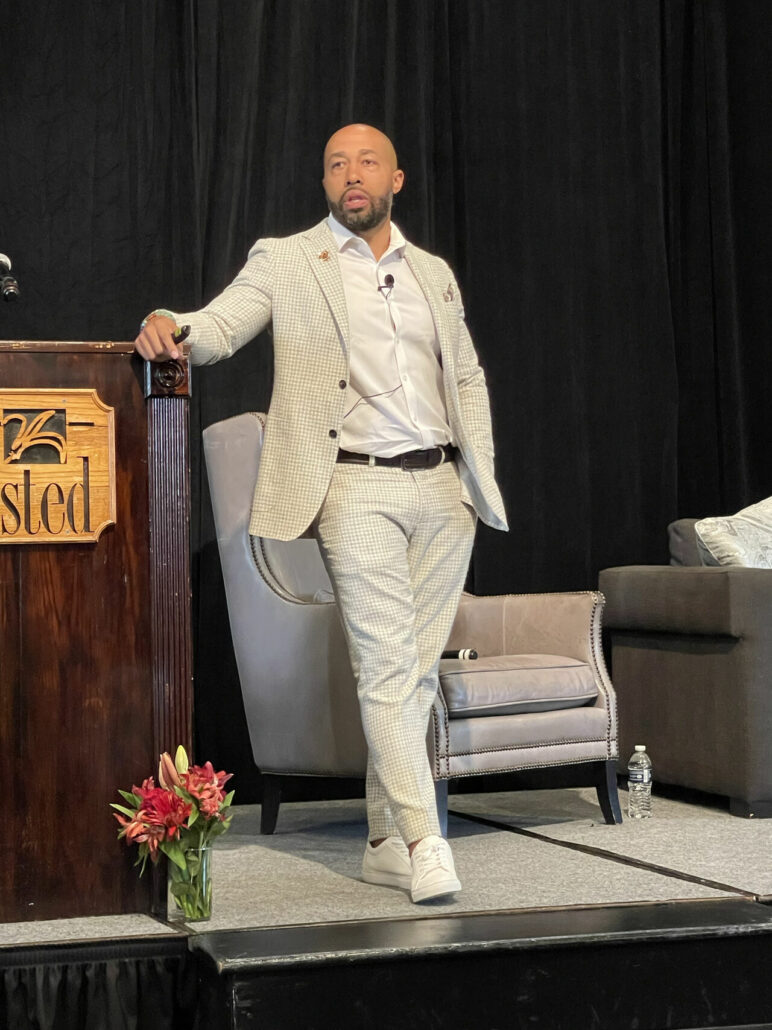
Charles Johnson IV, founder of 4Kira4Moms, delivered the afternoon keynote sharing the tragic loss of his wife during the birth of their second son. He introduced us to Kira – an educated, professional, successful, active, and loving wife and mother. Then he walked us through the day of the birth – a day full first of excitement and joy and then of extreme frustration and overwhelming loss. Charles spoke to us on the sixth anniversary of his wife’s passing and the day after his son’s sixth birthday. He explained that he advocates on behalf of Kira and other moms lost to childbirth and shared the worsening statistics in the U.S. around maternal mortality. Every year, more than 800 women die from preventable causes related to pregnancy and childbirth. The U.S. ranks 55th in the world for maternal mortality, but first for maternity spending. Those statistics are even more alarming when viewed with an equity lens – Black women are four times more likely to die from pregnancy or childbirth complications than white women. 4Kira4 Moms’ mission focuses on four areas: educate, advocate, support, and campaign/legislate. Examples of actions 4Kira4 Moms has taken is the partnership they have with Yelp to provide maternity care measures for approximately 250 hospitals that deliver babies in California. Charles has also been instrumental in legislation including H.R. 1318 and the Black Maternal Health Caucus.
Panelists Discuss Primary Care, Maternal Care, and Data
The morning panels discussed the importance of the primary care relationship and steps that employers, providers, and payers are taking to improve access to primary care. After hearing Kira’s story, the next panel provided a view of maternal care specific to Kentucky. While Kentucky’s maternal mortality is worse than the national statistics, the panelists shared examples of work to improve care, including a doula program by Norton Healthcare in West Louisville. The final panel of the day looked at how important it is to view data with both an equity and social determinants of health lens.
Principles of Healthcare Equity
Dr. Michael Imburgia, founder of Have a Heart Clinic, Delanor Manson, CEO Kentucky Nurses Association, and Natalie Middaugh, Director of Programs and Health Strategies at KHC, shared the work of the Healthcare Equity Advisory Committee and the recently released Principles of Healthcare Equity in Greater Louisville. Dr. Imburgia shared the results of racist healthcare practices on patients that he sees every day in his cardiology practice. On behalf of the Committee, Mike, Delanor, and Natalie called upon healthcare organizations to sign a letter of support for the internal implementation of the principles. You can view the Committee’s work and the principles by clicking here.
Visionary Award
The KHC recognized Randa Deaton, KHC’s first President and CEO, for her leading-edge spirit, creative approach, and for her ability to think in new and innovative ways. Her leadership and guidance provided the KHC the important foundation it needed as it transitioned from under the UAW/Ford umbrella.
